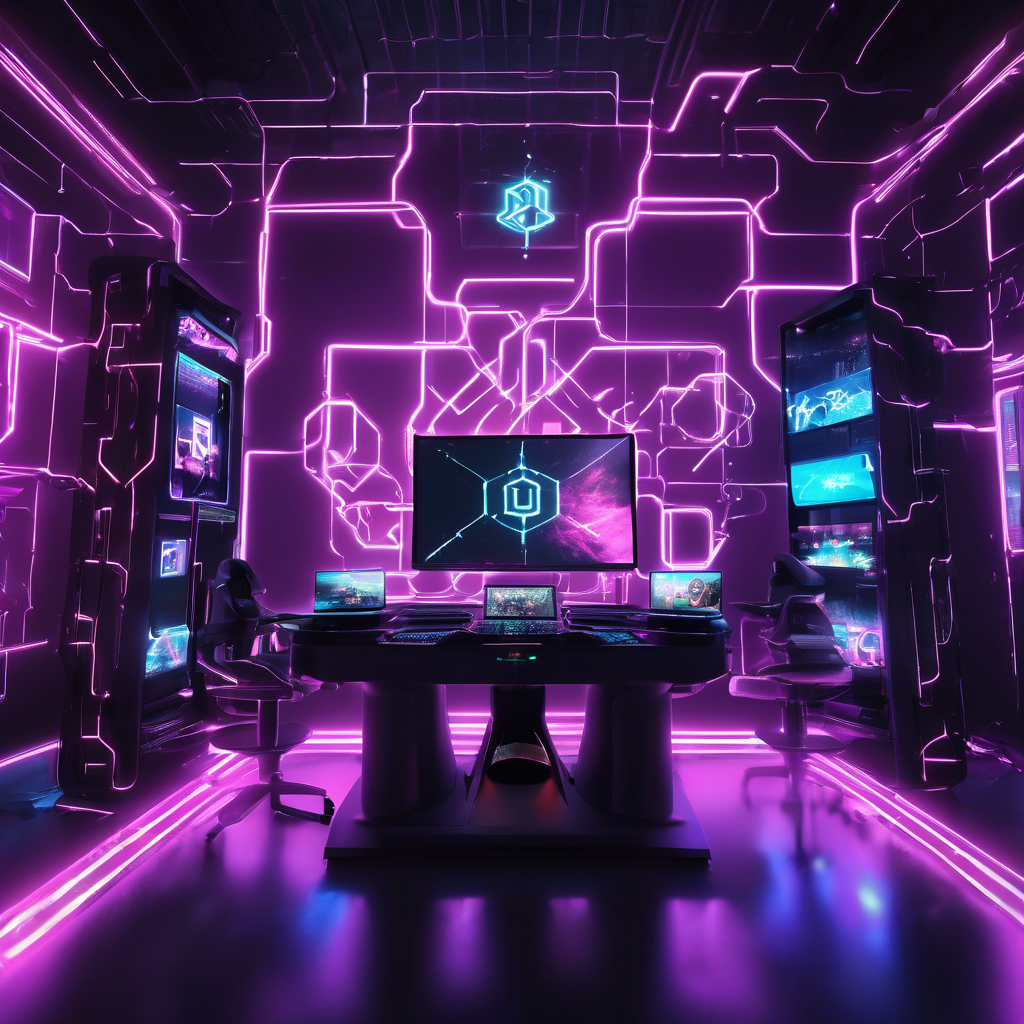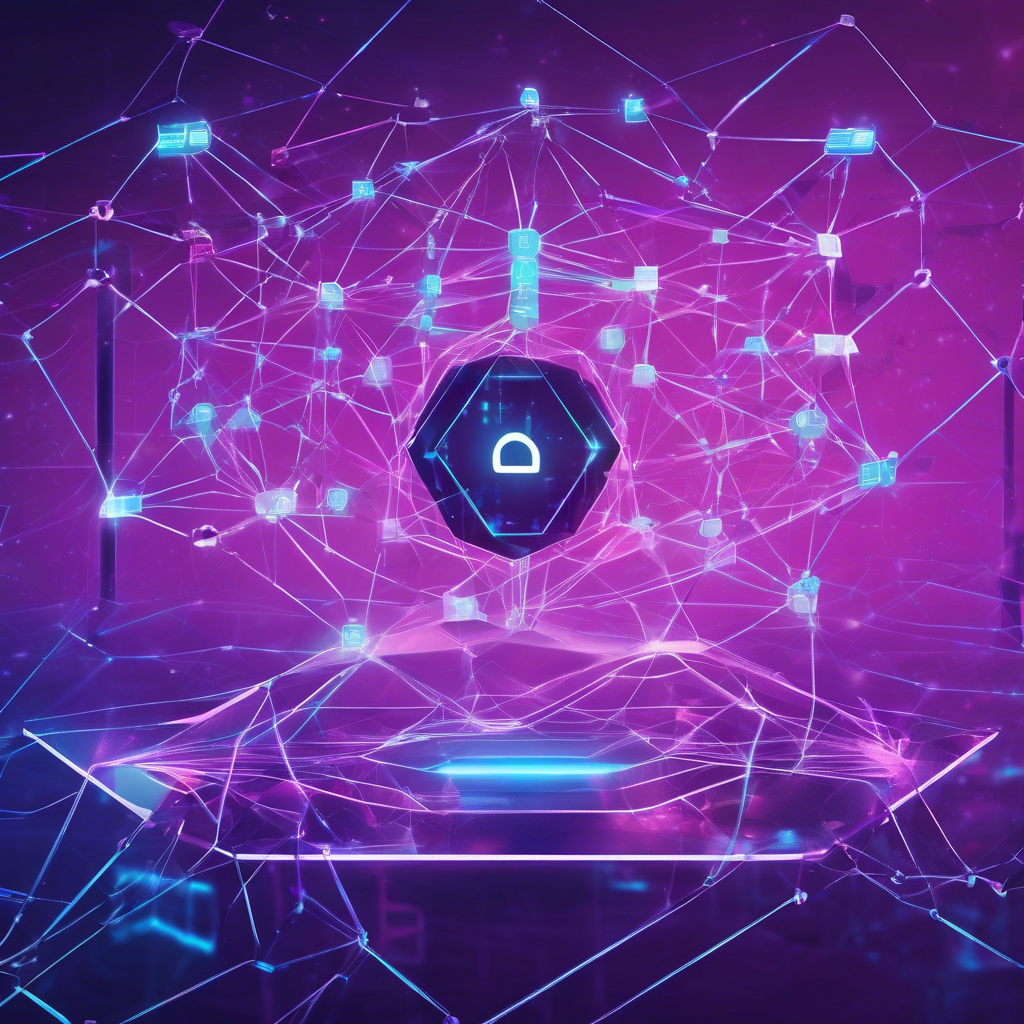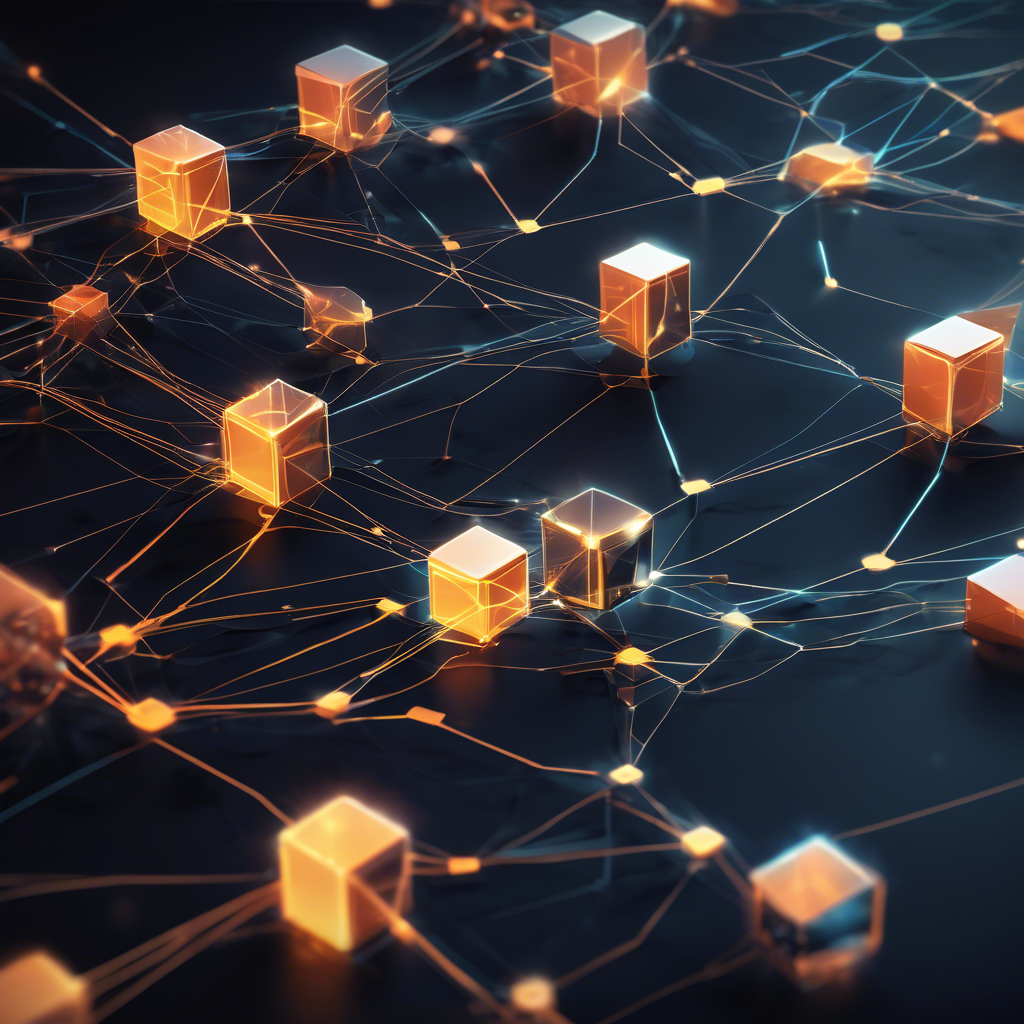How Blockchain Technology is Revolutionizing the Video Game Industry

The video game industry has evolved rapidly with innovations such as 3D graphics, online gaming, and virtual reality enhancing player experiences and pushing interactive entertainment’s boundaries. Now, a new revolution is emerging through blockchain technology, which introduces decentralization, true digital ownership, and novel economic systems. Blockchain enables players to genuinely own in-game assets and fosters new economic interactions, promising greater transparency and autonomy beyond gaming. This article examines blockchain’s impact on video games and why it is reshaping industry norms. **Understanding Blockchain and Web3** Blockchain and Web3 are redefining digital structure by offering decentralized alternatives to traditional centralized models. Their influence extends beyond finance into sectors like gaming. **What is Blockchain?** Blockchain is a decentralized data storage and transmission technology using a ledger organized into blocks linked in a chain. Each transaction is recorded immutably and validated by the network consensus, preventing fraud and reducing reliance on intermediaries. This decentralized approach eliminates single points of failure and enhances security and trust among users. **The Concept of Web3** Web3 represents the next Internet generation, shifting away from Web2’s centralized platforms where major companies control and exploit user data, raising privacy concerns. Instead, Web3 decentralizes governance and data management, redistributing power by storing data across decentralized networks. It guarantees users’ ownership of digital assets via tokens, enabling autonomy and diminishing dependence on centralized entities. Players and creators can monetize activities directly without middlemen. **Blockchain’s Contributions to Video Games** Blockchain is revolutionizing gaming by introducing new economic models, enhancing player interaction, and establishing authentic asset ownership. **Digital Ownership and In-Game Assets** Blockchain allows genuine ownership of virtual items through non-fungible tokens (NFTs), which are unique blockchain-stored assets guaranteeing authenticity and rarity. In games, NFTs can represent characters, equipment, or land. Unlike traditional items controlled by publishers, NFTs belong to players and can be traded on external marketplaces. Titles like Decentraland and The Sandbox exemplify this by enabling buying, selling, and monetizing virtual land and content. This ownership creates tangible value and new monetization opportunities for players. **Innovative Economic Models** Blockchain fuels novel gaming economies, changing how players earn from games. - *Play-to-Earn (P2E):* Players earn cryptocurrency or NFTs by playing, creating in-game currencies with real-world value. Axie Infinity, where players breed and battle NFT-based creatures called Axies, is a prominent example, having enabled players in countries like the Philippines to earn stable incomes. However, P2E faces challenges like token speculation leading to market collapses, raising concerns about sustainability. - *Play-and-Own (P&O):* Differing from profit-driven P2E, P&O emphasizes asset ownership without pressure to sell for gain. It focuses on player experience by allowing acquisition and long-term use of unique items valued for aesthetics or gameplay utility. This model mitigates speculation risks and supports more stable virtual economies, as seen in games like Illuvium and Gods Unchained. **Interoperability and Open Ecosystems** Blockchain enables an interconnected environment where players’ NFT assets can be utilized across multiple games and blockchains.
Standards such as ERC-721 and ERC-1155 ensure cross-platform compatibility, empowering players to transfer characters or equipment between games. This disrupts traditional player-studio dynamics by granting users greater control and fostering innovation and retention through open ecosystems. **Notable Blockchain Games** - *CryptoKitties:* One of the earliest blockchain games, where players collect, breed, and trade unique digital cats as NFTs on Ethereum. Its 2017 success highlighted the scalability limits of Ethereum due to network congestion and high fees, revealing challenges for widespread NFT game adoption. - *Illuvium:* An open-world RPG where players capture tradable NFT creatures called Illuvials. It combines traditional RPG mechanics with blockchain advantages like verifiable rarity and marketplace trading. Illuvium aims to deliver a seamless experience addressing blockchain gaming’s accessibility and technical complexities. **Initiatives from Major Publishers** Big names like Ubisoft have experimented with blockchain, launching platforms like Quartz that enable NFT ownership of in-game items (e. g. , in Tom Clancy’s Ghost Recon Breakpoint). However, these efforts faced mixed reactions, including player criticism over perceived monetization excesses and lack of gameplay relevance. Ubisoft’s response underscored that NFT acceptance hinges on delivering clear player value. **Challenges and Controversies** Despite potential, blockchain gaming faces criticism and hurdles: - *Player and Developer Reception:* The community is divided; some embrace innovation, whereas others fear games becoming speculative zones prioritizing monetization over enjoyment. Scams and speculation exacerbate distrust. Developers also differ, with some viewing blockchain as innovation and others as cumbersome. - *Environmental Impact:* Early blockchains use energy-intensive Proof of Work validation, contributing to significant carbon footprints. Gaming on such networks raises sustainability concerns. Transitioning to Proof of Stake (as Ethereum has) drastically reduces energy use. Efforts include carbon offsets and scalable, energy-efficient solutions. - *Regulation and Legal Issues:* The legal status of cryptocurrencies and NFTs remains ambiguous, varying by jurisdiction, complicating adoption by game companies. Regulatory challenges include preventing money laundering and ensuring consumer protection. A clear framework would safeguard players and foster market stability. **Future Prospects** Blockchain is advancing with improved infrastructure featuring better scalability and faster transactions, allowing games to handle large user bases efficiently. Enhanced user experiences through integrated wallets and easier fiat entry boost adoption among newcomers. Developers and creators gain new monetization avenues by selling NFT items directly, bypassing intermediaries for increased revenue control. Decentralized distribution platforms reduce traditional fees, empowering independent studios. Players are gaining more influence via decentralized autonomous organizations (DAOs) that enable voting on game decisions, promoting participatory governance. Co-creation models allow players to contribute content and share in profits, enriching the ecosystem and fostering immersive experiences. **Conclusion** Blockchain technology is ushering in a transformative era for the video game industry by establishing true digital ownership, novel economic models, and decentralized ecosystems. While facing challenges such as skepticism, environmental concerns, and regulatory issues, ongoing technological progress and increasing adoption suggest blockchain’s growing role in shaping the future of gaming—a future marked by greater player autonomy, innovative gameplay, and closer developer-player collaboration.
Brief news summary
The video game industry has rapidly transformed through innovations like 3D graphics, online multiplayer, and virtual reality. Now, blockchain technology is driving a new revolution by enabling decentralization, true digital ownership, and novel economic models via Web3. Unlike traditional Web2 platforms, blockchain’s decentralized ledger ensures security, transparency, and immutability, allowing players to genuinely own digital assets and identities. NFTs enable trading and monetization of in-game items beyond individual games, while Play-to-Earn models let players earn cryptocurrencies despite market fluctuations. The Play-and-Own concept emphasizes ownership without profit motives. Blockchain also supports interoperability of assets across games, fostering creativity and innovation. Projects like CryptoKitties and Illuvium showcase these advances, with major studios such as Ubisoft exploring blockchain despite skepticism. Challenges remain, including environmental concerns, regulatory hurdles, scams, and resistance to speculation. Improvements in scalability and accessibility continue to enhance user experience, while decentralized governance empowers players in decision-making. Despite challenges, blockchain holds significant potential to revolutionize gaming through enhanced ownership, transparency, and participatory ecosystems.
AI-powered Lead Generation in Social Media
and Search Engines
Let AI take control and automatically generate leads for you!

I'm your Content Manager, ready to handle your first test assignment
Learn how AI can help your business.
Let’s talk!

Meta's Aggressive AI Strategy Amidst Talent Acqui…
Mark Zuckerberg is mounting a strong comeback in the race for superintelligent artificial intelligence, signaling Meta’s renewed dedication to overcoming recent setbacks.

DeFi Leader Aave Debuts on Sony-Backed Soneium Bl…
The agreement will encompass Aave’s involvement in forthcoming liquidity incentive programs, including collaborations with Astar, a blockchain well-known within Japan’s Web3 ecosystem.

Meta's Potential $14.8 Billion Investment in Scal…
Meta is reportedly preparing a major $14.8 billion investment to acquire a 49% stake in Scale AI, a leading artificial intelligence company.

AI Daily Report May 09, 2025
The AI Daily Report for May 9, 2025, delivers a comprehensive analysis of recent global market trends and significant developments in the technology and financial sectors.

Trump’s CFTC pick calls blockchain a society-shap…
Brian Quintenz, the nominee chosen by US President Donald Trump to lead the Commodity Futures Trading Commission (CFTC), has described blockchain as a foundational technology with the potential to revolutionize far beyond the financial sector.

Meta's Potential $14.8 Billion Acquisition of Sca…
Meta Platforms has announced a major investment in artificial intelligence by planning to acquire a 49% stake in Scale AI for $14.8 billion.

AI Accelerates Intelligence Operations, Facilitat…
Director of National Intelligence Tulsi Gabbard recently addressed the Amazon Web Services Summit in Washington, emphasizing the transformative impact of artificial intelligence (AI) on U.S. intelligence operations.

 Auto-Filling SEO Website as a Gift
Auto-Filling SEO Website as a Gift








 Auto-Filling SEO Website as a Gift
Auto-Filling SEO Website as a Gift

